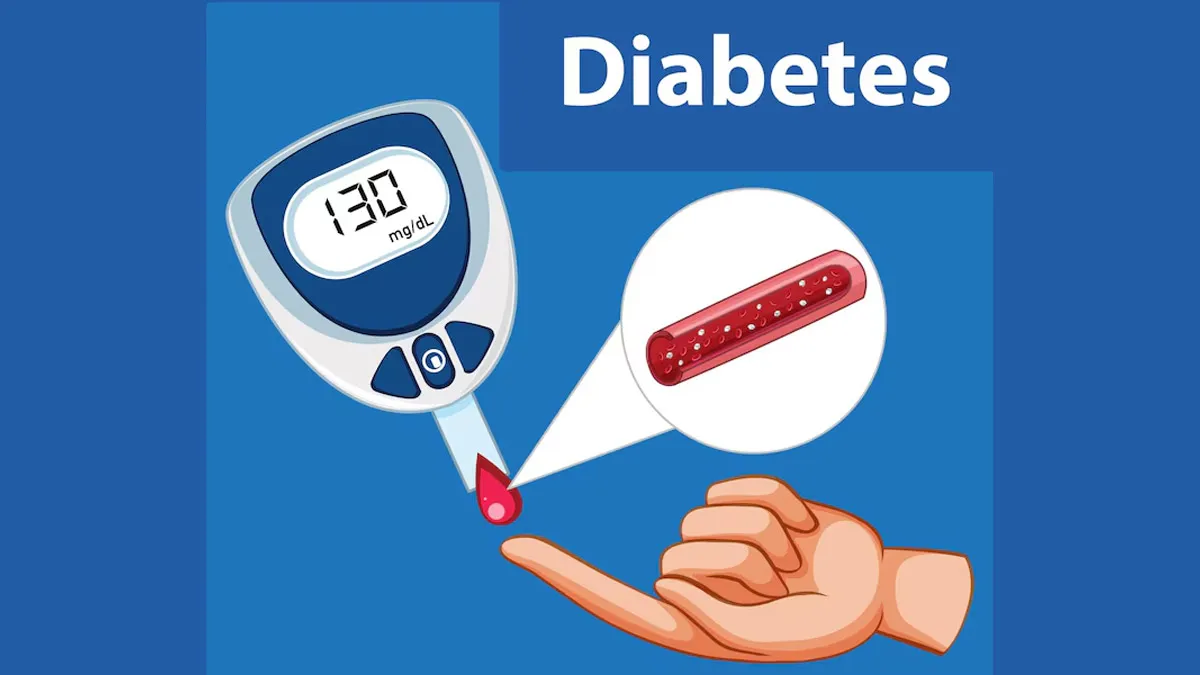
Diabetes is more than just a blood sugar issue; it’s a chronic condition that can quietly harm multiple organs over time if left unmanaged. Affecting millions worldwide, diabetes disrupts the body’s ability to produce or use insulin effectively, resulting in elevated blood glucose levels. While managing blood sugar is essential, diabetes can lead to severe complications beyond glucose control, impacting the heart, kidneys, eyes, nerves, and more.
Table of Content:-
Understanding these long-term complications is crucial for anyone living with diabetes, as early awareness and preventive measures can significantly reduce risks. This article delves into the various ways diabetes can affect your body over time and offers practical strategies to minimise these risks, promoting a healthier and more manageable life with diabetes.
To understand long term complications of diabetes, OnlyMyHealth team interacted with Dr Shivam Sharma, Head of Department and Consultant — Internal Medicine and Diabetology, SHALBY Sanar International Hospitals, Gurugram.
Understanding the Complications of Diabetes
Diabetes impacts multiple organs and body systems over time, particularly if it remains uncontrolled. This chronic condition is linked to two types of complications:
Microvascular Complications: These affect small blood vessels and include retinopathy, nephropathy, and neuropathy, together known as the ‘Diabetic Triopathy’.
Macrovascular Complications: These impact larger blood vessels and include cardiovascular disease, peripheral artery disease, and cerebrovascular disease.
Dr Sharma elaborates, “These complications, stemming from high blood glucose levels, can significantly harm various organ systems, and in severe cases, can even be life-threatening.”
Microvascular Complications: The Diabetic Triopathy

Diabetic Retinopathy: According to Dr Sharma, “Diabetes can damage the tiny blood vessels in the retina, causing a condition known as diabetic retinopathy. If untreated, retinopathy can lead to vision loss or even blindness.” Early detection and treatment are crucial to preventing visual impairment.
Diabetic Neuropathy: High blood sugar can damage nerves throughout the body, leading to diabetic neuropathy. Dr Sharma explains, “This nerve damage often affects the legs and feet and can lead to sensations of pain, tingling, or numbness. In severe cases, it can result in foot ulcers and even amputation.”
Diabetic Nephropathy: The kidneys play a vital role in filtering excess waste from the blood. According to the National Institute of Diabetes and Digestive and Kidney Diseases, prolonged high blood sugar can impair kidney function, leading to nephropathy, a serious complication that raises the risk of chronic kidney disease. This can also cause high blood pressure, further straining kidney function.
Macrovascular Complications

Diabetic Cardiomyopathy: Diabetes is closely linked to heart disease, with patients at greater risk for cardiomyopathy—a condition marked by weakened cardiac muscles. Dr Sharma highlights, “Diabetic cardiomyopathy is a structural and functional impairment of the heart, and it is a leading cause of heart failure in diabetic patients.”
Fatty Liver and Non-Alcoholic Fatty Liver Disease (NAFLD): Dr Sharma notes that diabetes often leads to fatty deposits in the liver, even in the absence of alcohol consumption, a condition known as non-alcoholic fatty liver disease (NAFLD). This condition can progress to more severe liver issues, increasing the risk of liver inflammation and damage.
Peripheral Artery Disease and Cerebrovascular Disease: Diabetes significantly raises the risk of both peripheral artery disease (PAD) and cerebrovascular disease, including stroke. Johns Hopkins Medicine says that PAD restricts blood flow to the limbs, often leading to pain and mobility issues, while cerebrovascular disease involves blocked blood flow to the brain, increasing stroke risk.
Also read: Can You Reverse Coronary Artery Disease? Cardiologist's Insights
Managing Diabetes to Prevent Complications

Effective diabetes management is crucial to minimising long-term complications. Dr Sharma emphasises, “Efficient supervision through lifestyle modifications, medication, and regular monitoring is crucial to prevent these complications, improve quality of life, and reduce mortality risk.” Key management strategies include:
- Blood Sugar Monitoring: Keeping blood glucose levels within a healthy range helps reduce diabetes-related complications significantly.
- Blood Pressure and Cholesterol Management: Controlling blood pressure and cholesterol is essential, as these factors are tightly linked to diabetes-related cardiovascular risks.
- Healthy Diet and Regular Exercise: A balanced diet and regular physical activity help in controlling weight, blood sugar, and overall health.
- Regular Health Check-ups: Routine check-ups can detect early signs of complications, allowing for timely intervention.
Early Detection and Self-Management
Diabetes requires a proactive approach. Early detection and a commitment to self-management are key to preventing complications. Dr Sharma notes, “Pre-emptive care and self-management are essential in mitigating the impact of diabetes.” By maintaining a consistent management plan and staying vigilant about lifestyle factors, people with diabetes can lead healthier lives with fewer complications.
Also watch this video
Read Next
World Diabetes Day: Did You Know? Staying Hydrated Can Lower Your Risk of Developing Diabetes
How we keep this article up to date:
We work with experts and keep a close eye on the latest in health and wellness. Whenever there is a new research or helpful information, we update our articles with accurate and useful advice.
Current Version